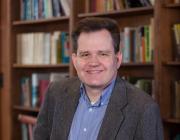Industrial Saboteurs, Reputed Thieves, Communists, and the Freedom of Association
Type
This article examines the shifting contexts and applications for the notion of a constitutionally protected "freedom of association" in the American courts. Judges had long sought to protect individuals to freely associate to engage in lawful activities, but they had also emphasized the limits on those protections when it came to individuals or groups who were engaged in unlawful activities. When the New Deal Court conceptualized the freedom of association as an extension of freedom of speech, it created some jurisprudential tensions that the justices had to resolve in order to provide coverage to the range of activities and organizations that they wanted to protect. The implicit limitations built into the initial concept became more explicit when the Court encountered the anti-Communist cases of the postwar period.

